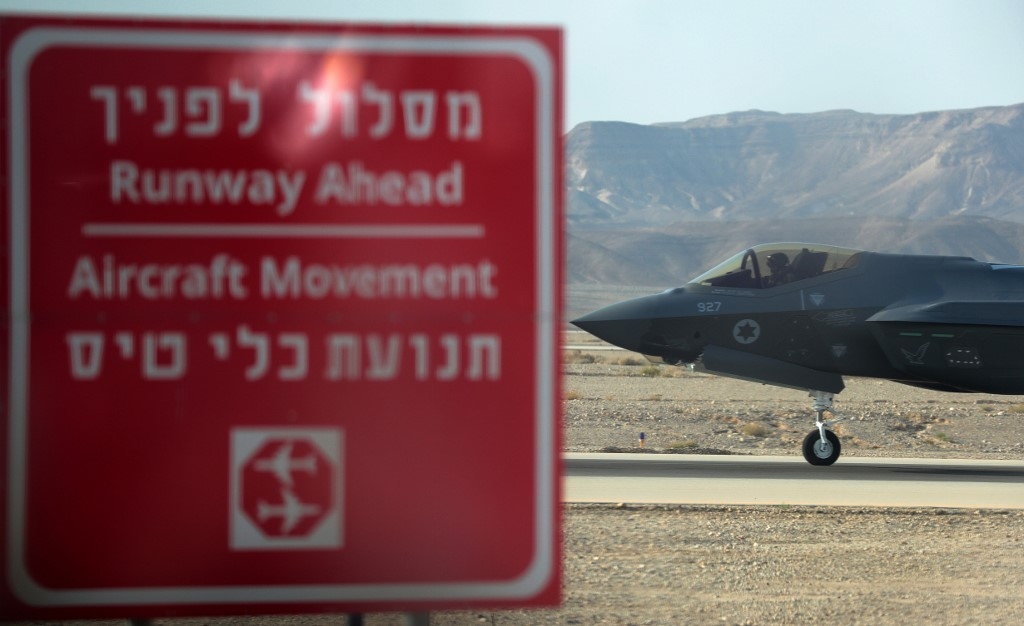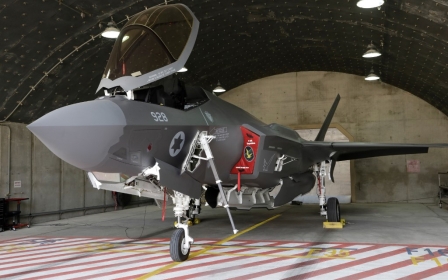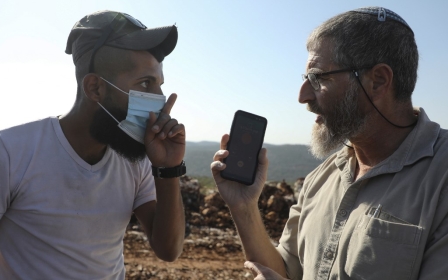Israel seeks third F-35 squadron from US before Trump leaves office

Israel is hoping to secure a squadron of F-35 fighter jets from the US before President Donald Trump leaves office later this month, the country's defence minister has said.
Benny Gantz told Israeli Ynet TV that he was in talks with Washington about the purchase of a third squadron of F-35s, a cutting-edge stealth jet fighter that has been sought after by many countries in the Middle East, including the United Arab Emirates, Qatar and Turkey.
"Without doubt, we need to expand the F-35 array. Right now we have two squadrons. I reckon we will expand that. That is what I requested of the Americans," Gantz told the Israeli broadcaster, the Reuters news agency reported on Monday.
"I would buy another F-35 squadron and then examine what to do with the balance - continuing to expand the F-35 (procurement), going for F-15s?"
Israel has been in talks with the US on how to preserve its military edge in the region after the Trump administration approved the possible sale of F-35 jets to the UAE last year.
While the plane used to be exclusively available to Israel, the US and UAE struck a deal after Abu Dhabi normalised relations with Israel in September.
According to reports, Israel only agreed to the potential sale after Washington assured Israel that it would maintain its qualitative military edge in the region.
Israel has already ordered two squadrons of F-35s from the US, amounting to around 50 aircraft. Gantz did not specify how many jets would be in the proposed third squadron, but in response to a question of whether Israel would secure the deal before Trump leaves office, he said: "I hope so. I think the defence budget needs to be handled properly, to be safeguarded. It is a kind of active insurance policy."
While the Israeli government is believed to have given consent for the UAE to procure the American F-35 planes, the country's military seems less eager for its Gulf ally to have the advanced weapons technology.
Last week, Israeli Air Force chief Amikam Norkin said at a university event that it was "less good that there are advanced aircraft in the region".
"It is not a direct threat to us, but it is a trend that will have an influence on us," Norkin told the Weizmann Institute event, the Times of Israel reported.
Arms sales and human rights concerns
Last month, the State Department announced that it approved a $23bn arms sale to the UAE, which included 50 F-35 warplanes and more than a dozen MQ-9 Reaper drones.
Despite some opposition on Capitol Hill over the UAE's role in the Yemen war and in Libya, Congress approved the sale.
Human rights organisations have repeatedy shared concerns over weapons sales to the UAE, saying they could be used to harm civilians in conflict zones.
Last week, the New York Center for Foreign Policy Affairs filed a lawsuit against the US State Department and Secretary of State Mike Pompeo over the arms sale, saying it did not meet the proper legal requirements for such a deal.
The outgoing Trump administration, set to leave the White House on 20 January, has been pushing through a whirlwind of arms deals with Arab Gulf countries during its final weeks, including the approval of a $290m sale of bombs to Saudi Arabia.
On the same day, the State Department also announced a $4bn sale of Apache helicopters to Kuwait, $104m in defence equipment to outfit the plane of Egyptian President Abdel Fattah el-Sisi and another $65.6m in precision targeting equipment for Egyptian warplanes.
Middle East Eye propose une couverture et une analyse indépendantes et incomparables du Moyen-Orient, de l’Afrique du Nord et d’autres régions du monde. Pour en savoir plus sur la reprise de ce contenu et les frais qui s’appliquent, veuillez remplir ce formulaire [en anglais]. Pour en savoir plus sur MEE, cliquez ici [en anglais].





